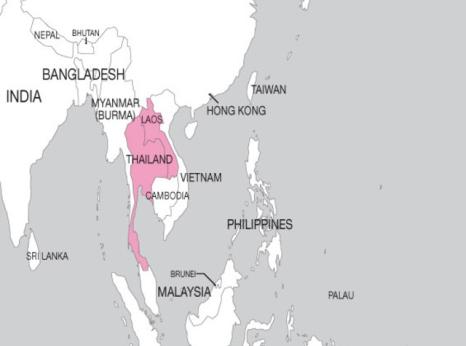Thailand: Child Protesters Targeted

In 2020 young people, including university and secondary school students under 18 years old, started a wave of peaceful protests across Thailand. The demonstrations spread from schools and universities to the streets. In response, Thai authorities detained and targeted participants and organisers with criminal charges - particularly after the protests focused on calls for reforms related to the monarchy.
Originally triggered by calls for democratic reform, the youth-led protest movement encompassed calls for constitutional change, social reforms, an end to official repression of government critics, improved education, and school safety. Participants also campaigned for the rights of women, indigenous people, LGBTI people and ethnic minorities. Street protests featured parties, debates, flash-mobs, sit-ins, live theatre and music, fashion shows, and art. Young people shared their activities and opinions on online platforms. Protesters deployed parody, satire, and images of popular youth culture to illustrate their calls for change. Teenagers and younger children under 18, often in school uniforms or street fashion, were the public face of these demonstrations.
Since mid-2020, Thai authorities, in an ongoing crackdown on peaceful protest, have initiated criminal and civil proceedings against at least 283 children for peacefully exercising their rights. Children who participated in peaceful demonstrations or shared their views on society and politics in public speeches or satirical comments online have faced detention, long-running legal proceedings, intimidation, harassment, and surveillance.
Authorities have prosecuted the majority of these children for violating official restrictions on public gatherings imposed to control the spread of Covid-19 under the Emergency Decree, which allows for two years’ imprisonment and/or a fine. The Decree was enforced through the declaration of an emergency situation for over two years between 26 March 2020 and 30 September 2022. Children also face charges under Article 112 of the Criminal Code governing lèse majesté, and Article 116 of the Criminal Code governing sedition. Article 112 allows three to 15 years’ imprisonment for “whoever, defames, insults or threatens the King, the Queen, the Heir-apparent or the Regent”. Article 116 of the Criminal Code allows for seven years imprisonment and prohibits people “to raise unrest and disaffection amongst the people in a manner likely to cause disturbance in the country; or to cause the people to transgress the laws of the Country”. International human rights experts have recommended Thai authorities amend or repeal these and other laws in order to comply with Thailand’s international human rights obligations.
Thanakorn ‘Petch’ Phiraban, a LGBTI activist from Bangkok, was found guilty on 22 November and 22 December 2022 on two separate counts of violating Article 112 of the Penal Code, for speeches at peaceful protests in Bangkok in September and December 2020. They were the first child to be prosecuted for lèse-majesté and have to serve a sentence to attend “training” at a vocational and youth training centre. Authorities suspended Thanakorn’s second sentence and will impose conditions of probation on Thanakorn. Officials are pursuing further charges under Article 112 of the Penal Code and the Emergency Decree against them.
Chan Tonnamphet, an 18-year-old Indigenous Karen community rights activist is currently under police investigation for violating emergency restrictions on peaceful protest when 17-years-old, in January 2022. She made a public speech at a sit-in protest in support of her community’s calls on authorities, joining the protest to represent the voices of community members who could not speak Thai. Members of her community have faced human rights violations including the enforced disappearance of human rights defender Billy Rakchongcharoen, stemming from their forcible eviction and relocation from their ancestral lands in Kaeng Krachan National Park, Petchaburi Province, western Thailand.
‘Sand’ (alias to protect her identity) is a 17-year-old rights defender, who took part in protests for equality at school and for political change. She has faced surveillance and harassment for her activism, in addition to eleven charges under the Emergency Decree and related legislation for her participation in peaceful protest. She currently faces charges for violating the Emergency Decree for attending a protest in Bangkok during her school holidays.